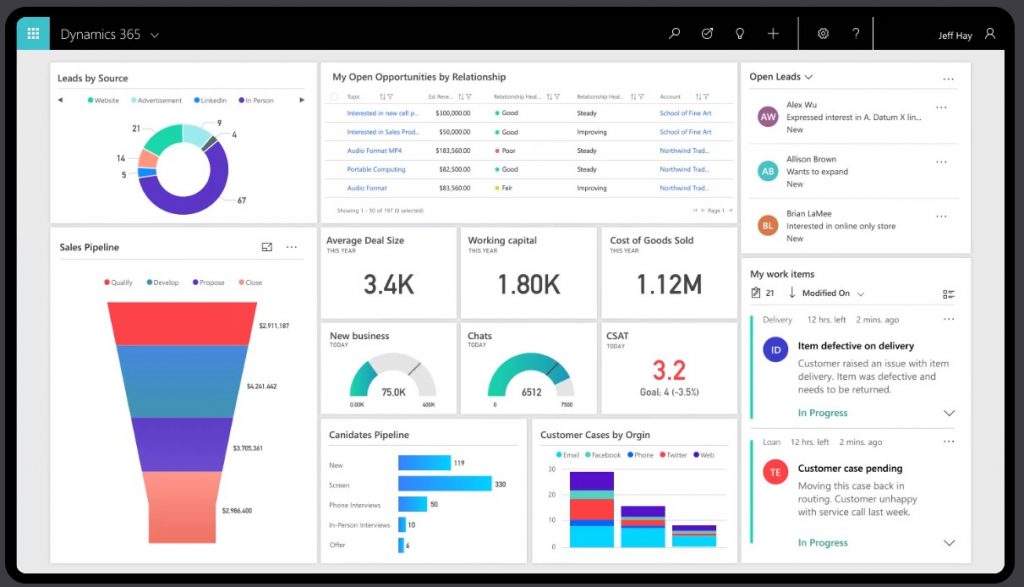
At what point does a professional CRM system become an absolute necessity? 5 customers? 50? 500? A start-up may get by with a shared spreadsheet, an app or even paper records. Even an SME might even be able to get away with it for a while. But after a while, sharing and recording information accurately will become too difficult.
It’s possible to develop a home-grown CRM system. A developer will see that the data structure is straightforward and user cases are simple. It’s not rocket science. Unfortunately rolling out your own CRM is not a DIY Project. If you do, it is almost always doomed to failure in the long run. As your:- developer moves on
- the business changes significantly
- key personnel leave without documenting your processes.
It is important to ensure that your departments can rely on the information you are storing.
Imagine you have a sales meeting with an existing customer. You rock up at their head office, renew acquaintances and get ready to pitch an add-on product. Then your contact reminds you that your support team are dealing with two long-standing issues for them. They are business critical and both issues are outstanding. You need this knowledge in advance of the meeting where possible!
To solve problems like this, we are going to look at CRM software:
- What is CRM Software?
- How is it used?
- Key functions of a CRM
What is CRM software?
Learning - a CRM allows the business to learn about its customers. It allows you to record and analyse purchasing and support history. Allowing you to anticipate future needs. In turn, this allows you to manage the client relationship and boost profitability.
Organisation - a CRM gives a focal point for the business to understand its processes and data. As a result you are then able to examine how your departments are interacting with customers. You can also use this information to organise processes around a common point.
Optimisation - customer interactions can be monitored and so optimised. This allows your business to appear joined-up and focused on the customer and their desired outcomes. A CRM allows executives to recall crucial information. Whether it was recorded during sales, installation or during the support process.
Colleagues in sales, marketing and support will know who’s who in the customer's business. It is important to make use of this knowledge throughout your business. Empowering them in this way will also make them and their colleagues feel valued. As great employees will use this information to improve customer satisfaction and the results will be recorded and visible.
What is a CRM used for?
A great CRM allows colleagues across the business to share information and connect processes. End users should feel that the system is there to support their specific needs. Rather than simply providing additional admin tasks into their work. It should give users “free” visibility across the business. Allowing them to make informed decisions that improve your customer relationships.
It is important to remember that each department or business area will use different CRM functionality according to their roles. The operating platform, how the data is presented and who has the rights to view and update it - all these will vary across the business.
Technical support
 Technical support staff are responsible for handling questions and issues raised by the customer. The CRM system will make it quick and simple to capture the information and recall it for use again later. For issues, there will typically be a screen or area to log the information - the product, the customer contact and details about the issue. Most systems will also provide options for automating elements of the issue logging process. Usually this comes in the format of giving the customer a web page, reading an email subject or tracking social media posts.
Technical support staff are responsible for handling questions and issues raised by the customer. The CRM system will make it quick and simple to capture the information and recall it for use again later. For issues, there will typically be a screen or area to log the information - the product, the customer contact and details about the issue. Most systems will also provide options for automating elements of the issue logging process. Usually this comes in the format of giving the customer a web page, reading an email subject or tracking social media posts.
This automation means that the key information is automatically shared across the team. Allowing you to assign the issue to another team member, escalated to management or resolved immediately. This can be especially helpful when you have multiple tiers of support being provided to your customers and clients.
A CRM can also improve your responses to incoming questions. It will allow junior staff to easily find answers to questions that have already been handled and learn from these engagements. It will also allow regular questions to be promoted into an FAQ section, allowing customers to find an answer themselves. FAQs are increasingly important for digital marketing and so it is a good idea to use your records to find suitable questions and answers to feature. Google is placing a high value on FAQ pages but this isn't the only marketing benefit of a strong CRM system.
Marketing
Marketing professionals will use a CRM to improve their understanding of the sales pipeline. It gives them a view of opportunities and leads and enables them to track customers from enquiries through to sales.
By understanding a customer’s journey, marketing teams can design campaigns and activities to deliver value to the business. A well selected system will allow them to add value to existing customers and find new ways to attract additional leads and clients into the business. They can then track these campaigns from initial awareness of the business right through to project deliverables and even ongoing support records. Allowing them to gain insight into which customers respond to which types of content and how this is reflected in your long-term client relationships.
A CRM campaign builder will allow your marketing team to identify the most likely customers in the sales pipeline. A good system will then integrate with other software to make these insights even more powerful. For example with social media. Allowing marketers to automate the business’s presence. Based on real and useful information collected by others within the business.
Driving strategy
Senior managers can use a CRM to understand and analyse their customers. Enabling them to more accurately predict how their needs are changing. This gives them an insight into the market and where it is moving. Their goal here is to form an informed strategy. Giving them a competitive advantage and improved customer satisfaction.
They achieve this with analytics functionality. Functionality that allows them to mine their data and identify patterns. A skilled data analyst will build a multi-dimensional data model for them. Allowing managers then interact with the model. Slicing and dicing the data to find the patterns that matter most to their decisions.
It’s clear that implementing CRM early in the lifetime of a business will have positive benefits. Allowing executives and key decision makers to find and act upon information as and when they need it. Provided you use the data used properly. You will learn to understand customers and to optimise business processes around them.
